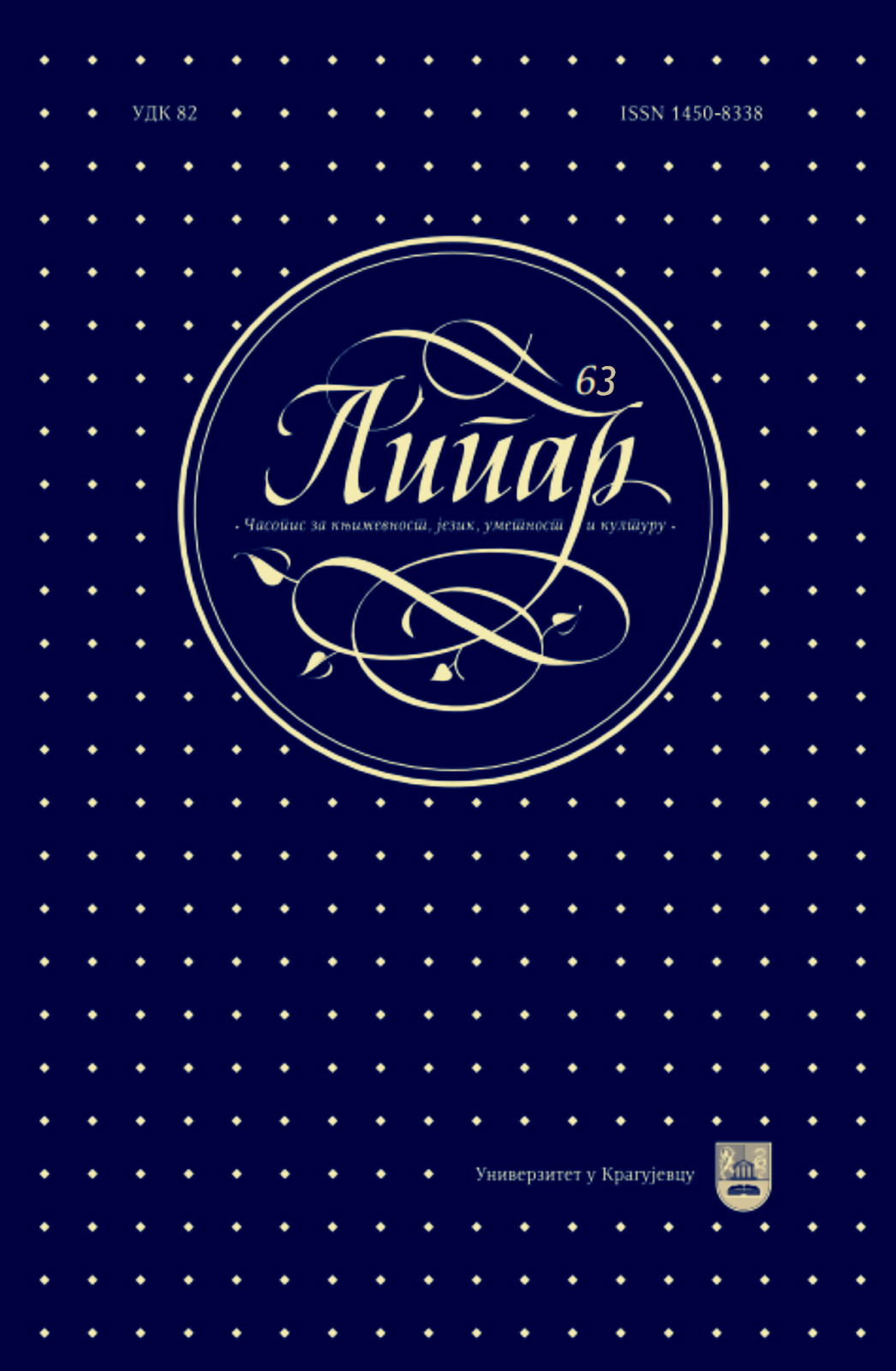CENTRALITY, MARGINALISATION AND THE STATE
OF EXCEPTION IN THE MERCHANT OF VENICE
CENTRALITY, MARGINALISATION AND THE STATE
OF EXCEPTION IN THE MERCHANT OF VENICE
Author(s): Petar PendaSubject(s): Language and Literature Studies, Studies of Literature, Other Language Literature, Philology
Published by: Универзитет у Крагујевцу
Keywords: network; centrality; state of exception; law; form; history; graph; structure; Merchant of Venice; marginalisation
Summary/Abstract: This paper will apply and further elaborate Franco Moretti’s fresh idea of introducing quantitative analysis in literary studies by designing a network graph based on characters’ addressing one another in The Merchant of Venice. The word ‘networks’ is in literary criticism usually used in reference to the artistic, publishing and social connections between writers. However, Moretti uses it to denote links among characters in a novel or a play realised through their speech acts or interactions. Nonetheless, Moretti’s network graph does not go beyond the demonstration of the play’s structure and interconnectedness of the characters and leaves out emotional charge and a nuanced relation of characters. Bearing this in mind, I propose a graph which will combine Moretti’s distant reading with close reading and thus lead to a better understanding of the play in its entirety. The proposed approach will take into consideration more than just verbal interaction. In this way, considerable attention will be paid to unspoken thoughts and emotions presented via descriptions, which leads to a more comprehensive understanding of relations among characters. This analysis aims at dealing with the often debated issue of centrality in The Merchant of Venice, that is, why the title character of Antonio is not the central figure of the play but Portia and Shylock respectively. Does this giving prominence to Portia and Shylock indicate Shakespeare’s ideological position when it comes to minorities? Does such a political stance mean subversion of the accepted political order of the time? Does this violation of order or “state of exception” denote political rebellion from Shakespeare’s part?
Journal: Липар - часопис за књижевност, језик, уметност и културу
- Issue Year: XVIII/2017
- Issue No: 63
- Page Range: 161-171
- Page Count: 11
- Language: English

